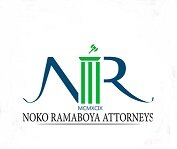Best Real Estate Contracts and Negotiations Lawyers in Pretoria
Share your needs with us, get contacted by law firms.
Free. Takes 2 min.
Free Guide to Hiring a Real Estate Lawyer
List of the best lawyers in Pretoria, South Africa
About Real Estate Contracts and Negotiations Law in Pretoria, South Africa
The law of Real Estate Contracts and Negotiations in Pretoria, South Africa is based on the South African common law system and specific legislation such as the Alienation of Land Act and the Sectional Titles Act. This area of the law regulates agreements for the acquisition, disposal, and leasing of the property, including agricultural land, residential, commercial and industrial properties, and property developments. It also provides for the resolution of associated disputes, including issues about contractual terms, transfer of rights and responsibilities, or changes to the agreement.
Why You May Need a Lawyer
A lawyer can assist you in interpreting complex legal documents, negotiating contract terms, resolving disputes, and ensuring a property transaction occurs legally and smoothly. Common scenarios include purchasing or selling a property, entering a lease agreement, establishing a property development, structuring a property deal for tax optimization, or dealing with a real estate dispute. A lawyer can help ensure that your rights and interests are adequately protected.
Local Laws Overview
Key local laws include the Alienation of Land Act which regulates property sales and transfers, and the Sectional Titles Act which governs the individual ownership of units or sections within a complex. Conveyancing, the legal process of transferring property from one owner to another, is regulated by the Deeds Registries Act. Planning and development are generally regulated by municipal bylaws and the National Building Regulations and Building Standards Act is essential when constructing new property developments. Other important laws include those relating to zoning, land use, heritage sites, and environmental issues.
Frequently Asked Questions
How long does the conveyancing process take?
Typically, the conveyancing process takes about two to three months after the signing of the purchase agreement, but it can sometimes take longer due to various factors such as financial arrangements and property inspections.
Do I need a lawyer to sell or buy a house?
While it's not compulsory, it is highly recommended. Property transactions are significant and complex, and a lawyer can help protect your interests and ensure all legal requirements are met.
Can I negotiate on the purchase price?
Yes, it is normal for negotiations to take place on the purchase price. Both parties typically have a lawyer or estate agent involved to facilitate these discussions.
What happens if there is a breach of contract?
If either party breaches the contract, legal action can be taken. Possible remedies include enforcing compliance with the contract or claiming damages.
What are my rights as a tenant?
Tenants have many rights under South African law, including the right to privacy, a safe and habitable property, and to be free from discrimination. All lease agreements must comply with the Rental Housing Act.
Additional Resources
The Department of Justice and Constitutional Development and the Department of Rural Development and Land Reform provide resources relating to property law, including legal Acts and relevant forms. National associations such as the South African Property Owners Association (SAPOA) and the Real Estate Business Owners of South Africa (REBOSA) also provide useful information.
Next Steps
If you need legal assistance with your Real Estate Contracts and Negotiations in Pretoria, South Africa, then consider seeking legal counsel. Look for a lawyer who specializes in this area, make sure you understand their fees, and prepare for the initial consultation by gathering all the necessary documentation and with a list of questions. Remember, understanding your rights and responsibilities in real estate transactions can help to ensure a fair and smooth process.
Lawzana helps you find the best lawyers and law firms in Pretoria through a curated and pre-screened list of qualified legal professionals. Our platform offers rankings and detailed profiles of attorneys and law firms, allowing you to compare based on practice areas, including Real Estate Contracts and Negotiations, experience, and client feedback.
Each profile includes a description of the firm's areas of practice, client reviews, team members and partners, year of establishment, spoken languages, office locations, contact information, social media presence, and any published articles or resources. Most firms on our platform speak English and are experienced in both local and international legal matters.
Get a quote from top-rated law firms in Pretoria, South Africa — quickly, securely, and without unnecessary hassle.
Disclaimer:
The information provided on this page is for general informational purposes only and does not constitute legal advice. While we strive to ensure the accuracy and relevance of the content, legal information may change over time, and interpretations of the law can vary. You should always consult with a qualified legal professional for advice specific to your situation.
We disclaim all liability for actions taken or not taken based on the content of this page. If you believe any information is incorrect or outdated, please contact us, and we will review and update it where appropriate.
















